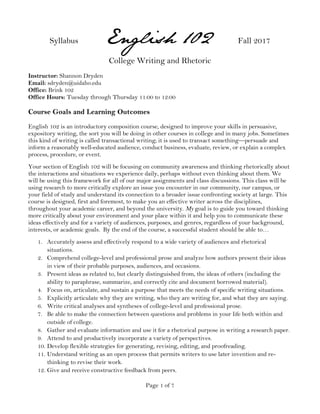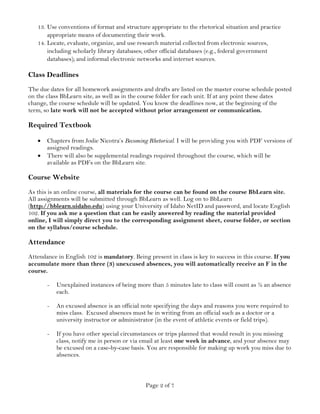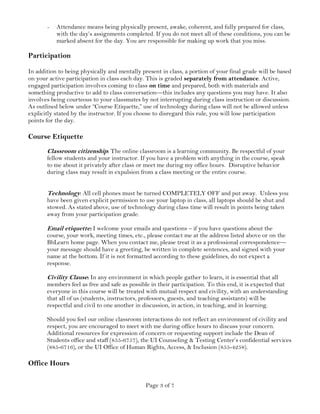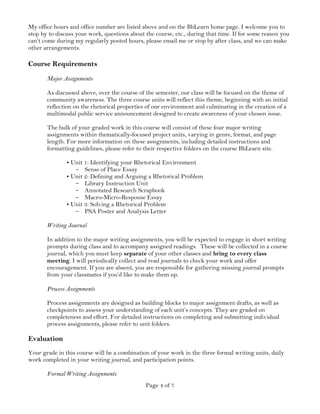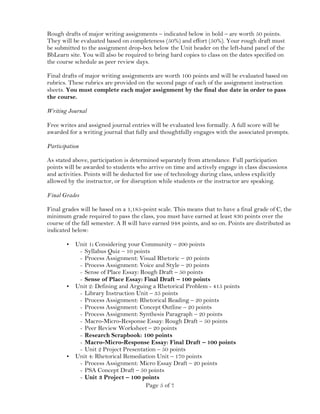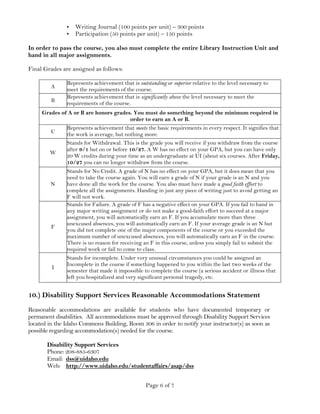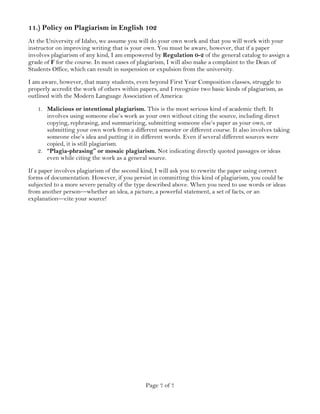This document is a syllabus for an English 102 college writing course. It outlines the course goals, learning outcomes, assignments, grading policies, and expectations. The main goals of the course are to improve students' skills in persuasive and expository writing for various audiences, purposes, and genres. Students will focus on community awareness and thinking rhetorically about interactions in their environment. Major assignments include essays analyzing a sense of place and a community issue, as well as a public service announcement. The syllabus provides details on class structure, participation expectations, assignments, grading scale, academic honesty policies, and instructor contact information.
